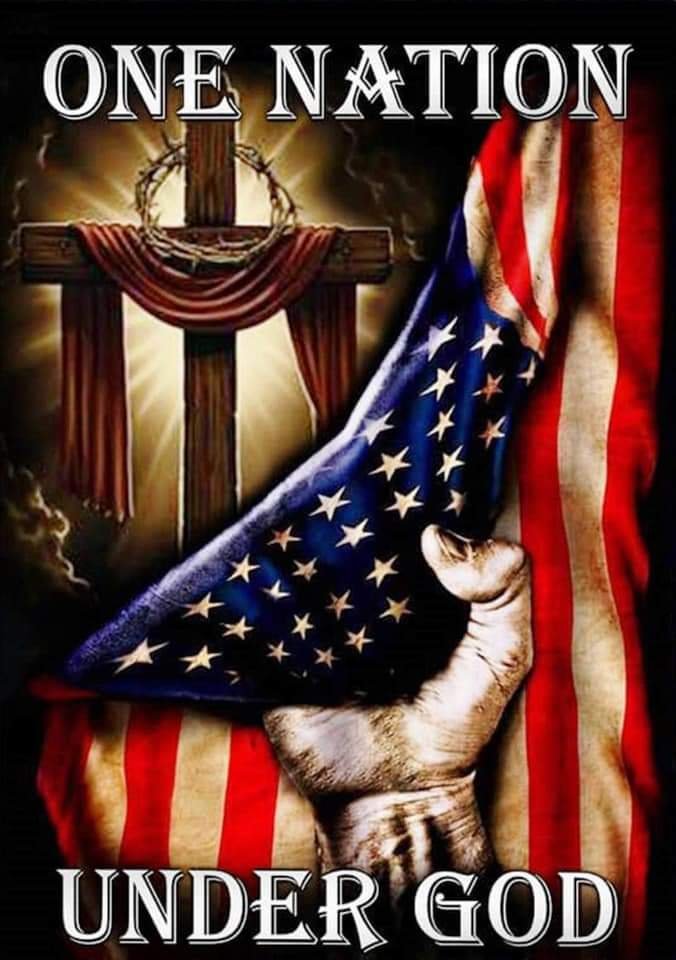INDEPENDENCE DAY—USA 4th JULY (Optional Memorial)
When, in the course of human events, it becomes necessary for one people to dissolve the political bonds which have connected them with another, and to assume among the powers of the earth, the separate and equal station to which the laws of nature and of nature’s God entitle them, a decent respect to the opinions of mankind requires that they should declare the causes which impel them to the separation.
We hold these truths to be self-evident, that all men are created equal, that they are endowed by their Creator with certain unalienable rights, that among these are life, liberty and the pursuit of happiness… ~From the Declaration of Independence
On July 4, 1776, the Continental Congress of the thirteen British colonies declared their independence from British rule. Since then, the United States has annually celebrated its independence on this day.
On December 15, 1791, the United States Congress adopted the Bill of Rights, the first ten amendments to the U.S. Constitution that had governed the land since 1789. The very first amendment declares “Congress shall make no law respecting an establishment of religion, or prohibiting the free exercise thereof…”
In 1802, President Thomas Jefferson wrote a letter to the Danbury Baptist Association in Connecticut in which he stated, “I contemplate with sovereign reverence that act of the whole American people which declared that their legislature should ‘make no law respecting an establishment of religion, or prohibiting the free exercise thereof,’ thus building a wall of separation between Church & State.” Especially from this letter, the concept of the “separation of Church and State” has firmly endured in the United States, affording its citizens the freedom to worship as they choose.
While Independence Day is a national holiday, the Catholic Church in the United States also recognizes it as an Optional Memorial. On this day, we are called to pray for our country but also urged to exhibit “solemn reverence” for the freedoms we enjoy as citizens of this remarkable nation. Throughout world history, the freedom to worship according to one’s conscience has seldom been codified into law. Though it is more common today in varying degrees, the freedoms enshrined in our Constitution offer abundant reasons for celebration.
The idea of the separation of Church and State, however, can be a double-edged sword. On one hand, it guarantees every citizen’s right to worship God as he or she chooses. But, when misinterpreted, it can lead some to attempt to silence the voice of the Church in public discourse. This certainly isn’t God’s intention, and many would argue that it wasn’t the intention of our Founding Fathers either.
As Catholic citizens anywhere in the world, it is our duty to allow our faith to shape who we are and then to engage in every form of civil discourse, including the enactment of laws. Faith is not something to be practiced solely at church; it must permeate who we are and influence everything we do. True freedom enables us to enjoy the blessings of life, liberty, and happiness. Christians’ life, liberty, and happiness cannot be detached from Christian citizenship.
We have been endowed by our Creator with the right and duty to live and practice our faith openly in all aspects of our lives. This freedom encompasses work, school, sports, social groups, and even government. Although the Christian faith does not need to be “imposed” upon others, Christian citizens must be allowed to practice their faith anywhere and everywhere. If not, our God-given rights and even our Constitution risk being undermined.
At the end of time, when Jesus returns, our world will be governed as a monarchy. The King of Kings will rule, and we will be subjects of this great, merciful, just, and perfect Lord forever. Until that glorious day arrives, we must endeavor to govern ourselves. The United States, along with many other democracies, is governed by the will of the people. But what would happen if the “will of the people” evolved to become atheistic or immoral?
The will of the people is not an infallible guide for governance; however, it serves as an excellent system when the will of the people is collectively united with the will of God. As Christian citizens, we must persistently and unabashedly strive to unite our will with God’s, allowing our faith to shape our will, and then engage in civil discourse to shape our nation to better reflect the Kingdom of God.
As we celebrate Independence today, reflect on the deeper meaning of independence. From a Christian perspective, “independence” is not the freedom to do what we want, when we want, because we want, but the freedom to do what we ought. True freedom is found only when we live in accordance with the will of God. This kind of freedom fosters internal liberty, and that liberty should become enshrined in everything we do and in every aspect of human life. You are the bridge between Church and State. While the Church does not govern the State, people of faith must.
PRAYER
Most powerful Lord, as we celebrate the Independence Day of one of the most powerful nations, we are amazed at Your divine power and ability to perfectly calm the storms that afflict Your people in all walks of life, all over the globe. Please fill us with hope and humility so that we will never hesitate to turn to You in our need and to also cry out to You for Your continuous intervention in the lives of others. Awake, oh Lord, and save Your people, for we will truly perish without You! Jesus, I trust in You.
